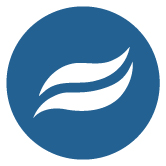

|

|
| Major: 3092
Catalog Year: 2024-2025
Effective Term: 2025 Spring
Last Admit Term: 9999
Award: AAS Total Credits: 65-71 CIP Code: 30.9999 |
Primary College:
Initiating College: Rio Salado College
Program Availability: Not Found
Program Availability: College-Specific
Field of Interest: Behavioral Science and Human Services
Instructional Council: Occupational Administrators GPA: 2.00 |
|
SOC Code: Upon completion of this certificate, students may pursue a career as:
21-1019.00 Counselors, All Other 21-1023.00 Mental Health and Substance Abuse Social Workers 21-1029.00 Social Workers, All Other | |
|
Program Prerequisites: None
|
|||||||||||
| Required Courses | |||||||||||
|---|---|---|---|---|---|---|---|---|---|---|---|
Certificate of Completion in Workforce Development and Community Re-Entry (5581) 13 | Credits: 14-16 | ||||||||||
| Restricted Electives | |||
|---|---|---|---|
Students will choose one of the following for a total of 26-30 credits. | Credits: 26-30 | ||
| General Electives | |||
|---|---|---|---|
| Credits: | |||
| General Education Requirements | |||
|---|---|---|---|
| General Education Requirement | Credits: 25 | ||
| General Education Core | Credits: 15 | ||
| First-Year Composition | Credits: 6 | ||
| Any approved general education course from the First-Year Composition area. | |||
| Oral Communication | Credits: 3 | ||
| Any approved general education course from the Oral Communication area. | |||
| Critical Reading | Credits: 3 | ||
| Any approved general education course from the Critical Reading area. | |||
| Mathematics | Credits: 3 | ||
| Any approved general education course in the Mathematics area. | |||
| General Education Distribution | Credits: 10 | ||
| Humanities, Arts and Design | Credits: 3 | ||
| Any approved general education course from the Humanities, Arts and Design area. | |||
| Social-Behavioral Sciences | Credits: 3 | ||
| Any approved general education course from the Social-Behavioral Sciences area. | |||
| Natural Sciences | Credits: 4 | ||
| Any approved general education course from the Natural Sciences area. | |||
| Learning Outcomes | |||
|---|---|---|---|
| 1. Apply relevant knowledge, skills, and habits of mind to seek career opportunities in the field. (FYE101, FYE103)
CCL in Workforce Development and Community Re-Entry (5581N) 1. Summarize the effectiveness of conflict, time, money, and stress management for the incarcerated person. (WFR110, WFR120) 2. Explain how developing personal skills improves a person`s value system. (WFR110) 3. Summarize how reunification skills promote a healthy self-esteem for the incarcerated person. (WFR112) 4. Describe communication techniques and styles to enhance healthy families and support systems. (WFR112) 5. Summarize types of personal boundaries, reasons for setting boundaries, and acceptable ways to set boundaries. (WFR114) 6. Review decision making skills, strategies, and resources for preventing substance abuse. (WFR116) 7. Identify job preparation skills for an incarcerated person re-entering the workforce. (WFR118) 8. Summarize appropriate information disclosure procedures for incarcerated persons on a resume, on a job application, and during an interview. (WFR118) 9. Summarize procedures and techniques to assist in job retention for an incarcerated person in transition. (WFR120) 10. Differentiate between protocol, conflict, and communication within the workplace. (WFR120) AND CCL in Workforce Development: Foundations in Addictions and Substance Use Disorders (5894N) 1. Examine the history of drugs of abuse and addiction. (ASD100) 2. Identify symptoms of addictions and substance use disorders. (ASD100) 3. Review roles and responsibilities of addictions counselors. (ASD100, ASD102, ASD120, ASD161, ASD165) 4. Summarize counselor ethics and standards of practice. (ASD100, ASD120, ASD161, ASD165) 5. Describe addiction prevention and treatment modalities. (ASD100, ASD145, ASD150, ASD165) 6. Differentiate between self-help groups and counseling. (ASD102, ASD150) 7. Explain professional counseling skills as they relate to the addicted client and family members. (ASD102, ASD161, ASD165) 8. Evaluate and demonstrate effective communication skills for counseling. (ASD102, ASD161, ASD165) 9. Describe the effect of various categories of substances of abuse on the human physiological system. (ASD110) 10. Review the psychological and pharmacological effects of substance abuse. (ASD110) 11. Summarize the effects of chronic substance abuse on development. (ASD110) 12. Explain the physiological effects of detoxification of various categories of substance abuse. (ASD110) 13. Summarize fundamental principles, concepts and historical antecedents of various self-help groups. (ASD150) 14. Analyze counseling concepts inherent to the twelve steps. (ASD150) 15. Demonstrate appropriate beginning counseling and record keeping skills. (ASD161, ASD165) OR CCL in Workforce Development: Professional Cooking and Sustainable Practices (5895N) 1. Summarize introductory principles of and skills for professional cooking. (CUL101, CUL102) 2. Demonstrate basic equipment and utensil use. (CUL101, CUL102, CUL103, CUL104) 3. Review food safety concerns. (CUL101, CUL102, CUL103, CUL104, FON161, FON163) 4. Demonstrate techniques for preparing, cooking, keeping, storing, and protecting various foods. (CUL101, CUL102, CUL103, CUL104, FON161, FON163) 5. Practice ethical behavior and professional standards for safe and sanitary handling of food and kitchen equipment. (CUL101, CUL102, CUL103, CUL104, FON161, FON163) 6. Identify key ingredients and steps for making stocks, soups, and sauces. (CUL102) 7. Review foundational baking concepts, such as the role of each ingredient, the importance of measuring ingredients, and how to incorporate ingredients to achieve desired results. (CUL104) 8. Prepare dough for breads, cookies, pastry, and pies. (CUL104) 9. Prepare bakery fillings, sauces, and toppings. (CUL104) 10. Explain the effects of food systems on the environment, health, and communities. (FON161, FON163) 11. Assess the benefits of a sustainable food system. (FON161, FON163) 12. Summarize challenges for a sustainable future. (FON163) | |||
|
+ indicates course has prerequisites and/or corequisites.
++ indicates that any suffixed course may be selected. MCCCD Governing Board Approval Date: June 25, 2024 | |||